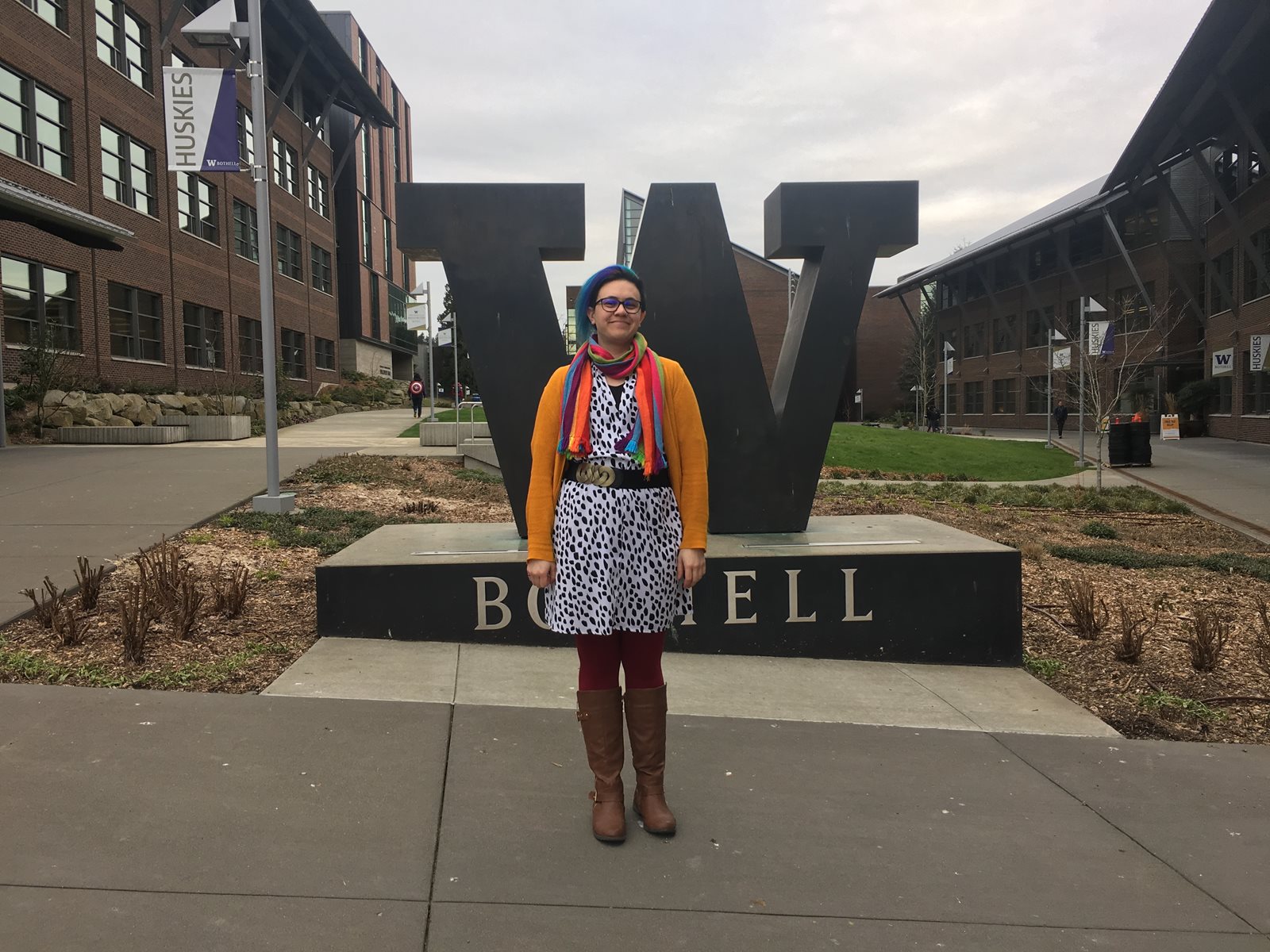Alum Avery Viehmann teaches approaches to queer and trans activism

Guest post by Mateó B. Ochoa.
Avery Viehmann (they/them pronouns) grew up in Arkansas and graduated from the M.A. in Cultural Studies (MACS) program in 2016 with an undergraduate degree in Writing and Composition. They have 10 years of teaching experience and spent the last 5 years teaching English at Highline College in Des Moines where they formally served as their Writing Center Director.
In February, Viehmann was a guest lecturer in Julie Shayne’s “Histories and Movements of Gender and Sexuality” course where they focused on the different approaches to queer and trans activism: social, political, legal, and economic. They worked with the class to create multiple campaigns advocating for accessibility and disability justice through a combination of the four methods. Groups presented on the importance of including persons with disabilities in sexual liberation movements, providing more resources for incarcerated people with disabilities, and making entertainment events more accessible for those who are Deaf, hard-of-hearing, and/or blind.
Viehmann was compelled to focus on LGBTQ+ social movements in Latin America due to the region’s Catholic influence. “It’s cultural as it is religious,” Viehmann explains, which limits how indigenous and non-indigenous Latinx communities approach their activist work and negotiate their genders and sexualities in public spaces. As a result, Viehmann has pushed themselves and other educators to be culturally responsible in their teaching. Given Highline’s large multicultural student body, they encourage students to use writing as a tool to share their stories while validating their racial and gendered experiences.
Since graduating from MACS, Viehmann has published “Latin American Queer Activism” in the 2nd Edition of The Wiley Blackwell Encyclopedia of Sociology. They have also designed and implemented a Global Gender Studies course at Highline in collaboration with Julie Shayne from Gender, Women & Sexuality Studies at UW Bothell. In addition to teaching, Viehmann has been nurturing their own creative writing practice centering indigenous characters in the genre of fantasy.
